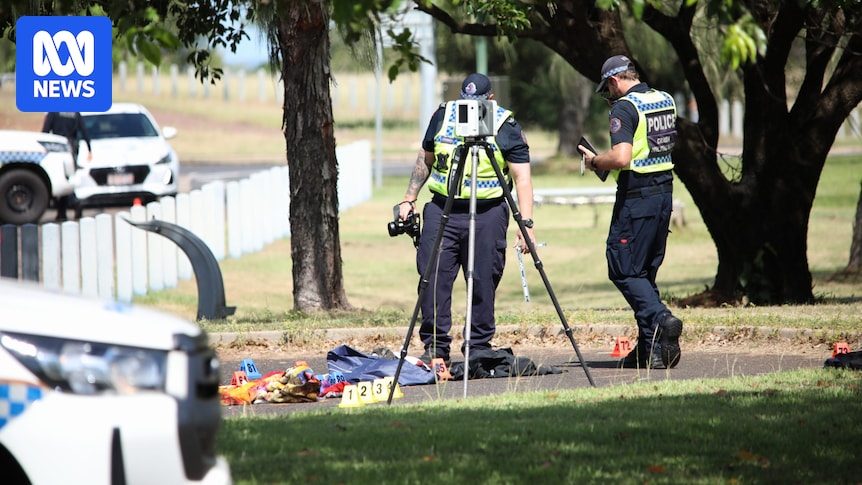Escape To The Country: Lifestyle Changes And Considerations

Table of Contents
Financial Considerations: Budgeting for Rural Life
Moving to the country often involves significant financial adjustments. While the idyllic image of rural life is alluring, the reality requires a realistic assessment of your finances.
Higher Property Costs
Rural properties, while potentially offering more space and land, can command higher prices per square foot than urban equivalents. This is due to factors like lower density of housing and the desirability of a peaceful, natural environment.
- Consider mortgage rates and potential stamp duty implications: Research mortgage options specifically tailored to rural properties. Stamp duty costs can vary significantly depending on location and property value.
- Factor in renovation costs; older properties often require significant work: Many rural properties are older and may need extensive renovations or repairs. Budget for unexpected costs and obtain multiple quotes from reputable contractors.
- Research property values in your target area to set a realistic budget: Don't just rely on online estimates. Consult with local estate agents to get a true understanding of market values.
Increased Running Costs
Beyond the initial property purchase, running costs in rural areas can often be higher than in cities.
- Investigate the availability and cost of heating oil, gas, or electricity in your chosen area: Rural properties may rely on more expensive heating solutions like oil, which can significantly impact your annual energy bills.
- Account for increased travel costs due to longer distances to amenities: Longer commutes to work, shopping, and healthcare facilities will add to your transportation expenses. Consider the cost of a vehicle, fuel, and maintenance.
- Factor in potential maintenance costs for larger properties and gardens: Rural properties often include larger gardens and outdoor spaces requiring significant upkeep, adding to your ongoing expenses.
Income and Employment
Securing a stable income is crucial for a successful "escape to the country." Employment opportunities might be different in rural areas.
- Research local job markets and identify potential employers: Explore job boards and network with local businesses to understand the employment landscape in your chosen area.
- Explore self-employment opportunities aligning with rural lifestyles (e.g., tourism, agriculture): Consider starting a business that leverages the rural environment, such as a bed and breakfast, farm shop, or artisan crafts.
- Assess internet connectivity – crucial for remote work opportunities: Reliable high-speed internet is essential if you plan to work remotely. Check internet availability before making a move.
Lifestyle Adjustments: Embracing Rural Living
Moving to the country involves more than just a change of address; it's a significant lifestyle shift.
Community and Social Life
Rural communities often possess a strong sense of community, but the social dynamics might differ from bustling city life.
- Attend local events and join community groups to integrate into the local scene: Participate in local fairs, farmers' markets, and community gatherings to meet your neighbors and build relationships.
- Be prepared for a slower pace of life and a different social rhythm: Rural life generally moves at a slower pace, and social interactions might be less frequent but more meaningful.
- Consider the proximity to friends and family and how this might change: Moving to the country might mean greater distance from your support network, impacting your social life and family relationships.
Access to Amenities and Services
Rural areas often have limited access to shops, healthcare facilities, and public transport.
- Research the availability of essential services (doctors, dentists, supermarkets) in your chosen location: Identify the nearest hospitals, clinics, and supermarkets and plan your travel accordingly.
- Plan for increased reliance on personal transportation: You'll likely need a car to get around, as public transport is often limited or non-existent in rural areas.
- Consider the potential for longer travel times to access specialized services: Accessing specialized medical care or particular shops might require longer journeys.
Nature and Outdoor Activities
One of the biggest draws of country living is the access to nature and outdoor pursuits.
- Identify outdoor activities you enjoy and assess the availability of opportunities (hiking, fishing, gardening): Explore the local area for walking trails, fishing spots, and opportunities for gardening.
- Consider the impact of seasons and weather conditions on your outdoor activities: Rural areas experience diverse weather conditions, impacting the availability of outdoor activities throughout the year.
- Research local nature reserves and parks: Discover the local natural beauty and plan your outdoor adventures.
Practical Considerations: Before You Make the Move
Before you pack your bags, there are essential practical steps to take.
Property Research
Thoroughly investigate any property you consider buying.
- Hire a qualified surveyor to inspect the property: A professional survey will identify any structural issues or potential problems.
- Obtain a full property history report: Check for any past issues or legal concerns related to the property.
- Check for any planning restrictions or environmental issues: Ensure that the property complies with all regulations and doesn't have any environmental concerns.
Connectivity and Infrastructure
Reliable utilities and communication are essential for modern living, even in the countryside.
- Test internet speeds at the property: Ensure sufficient broadband speed for working from home, streaming, and other online activities.
- Check the reliability of mobile phone signals: Poor mobile reception can be a significant issue in rural areas.
- Confirm the availability and cost of utilities (water, electricity, gas): Investigate the cost and availability of essential utilities before moving.
Transportation
Plan your transportation options, as public transport might be scarce.
- Assess the need for a car and the costs associated with running a vehicle in a rural area: Consider fuel costs, insurance, maintenance, and potential repairs.
- Consider the availability of local bus services or other forms of public transport: Research public transportation options, even if they're limited.
- Explore car-sharing options or ride-sharing services if available: Look into alternative transportation methods to reduce reliance on private car ownership.
Conclusion
Escaping to the country offers a unique opportunity for a fulfilling lifestyle change, but it's vital to weigh up the financial, lifestyle, and practical considerations. Careful planning and research are key to a successful transition. By considering the points highlighted in this guide, you can make an informed decision about whether an "escape to the country" is right for you and ensure a smooth and enjoyable transition to your new rural life. Start planning your escape to the country today!

Featured Posts
-
 Darwin Police Arrest Teen After Fatal Stabbing In Nightcliff
May 25, 2025
Darwin Police Arrest Teen After Fatal Stabbing In Nightcliff
May 25, 2025 -
 West Ham United Submits Offer For Kyle Walker Peters
May 25, 2025
West Ham United Submits Offer For Kyle Walker Peters
May 25, 2025 -
 Amundi Msci World Ii Ucits Etf Usd Hedged Dist A Guide To Its Net Asset Value Nav
May 25, 2025
Amundi Msci World Ii Ucits Etf Usd Hedged Dist A Guide To Its Net Asset Value Nav
May 25, 2025 -
 Ferrari Nappasi 13 Vuotiaan Lupauksen Nimi Muistiin
May 25, 2025
Ferrari Nappasi 13 Vuotiaan Lupauksen Nimi Muistiin
May 25, 2025 -
 Banco Master Acquired By Brb Implications For Brazils Banking Competition
May 25, 2025
Banco Master Acquired By Brb Implications For Brazils Banking Competition
May 25, 2025
Latest Posts
-
 Frances National Rally Assessing The Impact Of Le Pens Sunday Demonstration
May 25, 2025
Frances National Rally Assessing The Impact Of Le Pens Sunday Demonstration
May 25, 2025 -
 National Rallys Le Pen Demonstration A Disappointing Turnout
May 25, 2025
National Rallys Le Pen Demonstration A Disappointing Turnout
May 25, 2025 -
 Frances National Rally Le Pens Sunday Demonstration Falls Short Of Expected Show Of Force
May 25, 2025
Frances National Rally Le Pens Sunday Demonstration Falls Short Of Expected Show Of Force
May 25, 2025 -
 En France La Chine Muselle Ses Opposants Analyse D Une Strategie De Silence
May 25, 2025
En France La Chine Muselle Ses Opposants Analyse D Une Strategie De Silence
May 25, 2025 -
 France L Etendue De L Influence Chinoise Et La Censure Des Dissidents
May 25, 2025
France L Etendue De L Influence Chinoise Et La Censure Des Dissidents
May 25, 2025
